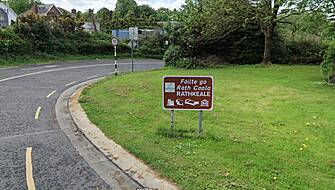Northern Ireland Assembly members are divided over a mandatory Covid certification scheme.
The scheme requiring people to prove Covid status to gain entry to a range of hospitality venues and large-attendance events was introduced late last month with a two-week grace period to allow businesses to adjust to the new requirements.
Patrons wishing to access nightclubs, pubs, restaurants and other licensed premises will need to provide proof of vaccination or a negative lateral flow test result or evidence of a previous Covid-19 infection.
The same rules will apply for entry to large indoor and outdoor events, such as concerts and sporting events.

The DUP opposed the scheme at the Executive and are expected to vote against it in the Assembly on Monday evening.
The North's Health Minister Robin Swann opened the debate on the regulations, saying he appreciates that a Covid certification scheme is “not without its challenges”, adding he had hoped that it would never be necessary.
But he said the pressures on hospitals could become as severe as they were in January 2021 due to the Omicron variant.
He said while by midday on Monday there were 10 confirmed cases of Omicron in Northern Ireland, as “the virus takes a hold on these islands that the number of local cases will increase rapidly”.
“We must consider every possible tool we have to slow the spread and therefore to push the anticipated hospital pressures as far into the new year as possible,” he said.

Addressing concerns on why the debate had not happened earlier, Mr Swann said the regulations had to be reviewed by the Examiner of Statutory Rules for legislative competence.
He told MLAs there is “clear evidence” that Covid certification will have benefits in battling the spread of Covid-19, and it will reduce virus transmission, primarily by reducing the likelihood of infectious individuals entering high-risk settings, reduce the risk of serious illness and death and alleviate pressure on the health system.
Mr Swann said Covid certification will also increase the likelihood that higher risk settings will continue to be able to operate as an alternative to closure or more restrictive measures.
“There is also overwhelming evidence, including that produced by the UK’s Vaccine Effectiveness Expert Panel in September of this year, that vaccination reduces the risk of becoming infected with the virus and in particular that it reduces the risk of serious illness requiring hospitalisation,” he told MLAs
Stormont Health Committee chairman Colm Gildernew said the committee was briefed on the Covid certification scheme, and raised the issue of compliance, adding that further work needs to be done to ensure the new rules are “achieving the desired effect”.
However, he said the committee agreed to recommend that the regulations be approved by the Assembly.
Speaking as a Sinn Féin MLA, he said his party would back the scheme, adding that an “unprecedented public health emergency requires unprecedented actions and measures to protect our people and our health services”.
However DUP MLA Pam Cameron said her party will not back the Covid certification scheme.
She said she was disappointed by the decision of Mr Swann to “ignore the lack of crossbench support for this policy prior to its becoming active”.
“And that the Health Minister chose to ignore that lack of crossbench unity instead deciding to plough ahead with this particular piece of legislation,” she told MLAs.
“Such affirmative votes were held in Scotland and Wales so I ask why was the minister so reluctant to allow this House its place in terms of its policy.”
Ms Cameron emphasised that her opposition to Covid certification should not be construed as an “unwillingness to recognise the fight against this Covid-19 pandemic”.
“Instead, my opposition to this is largely based on the lack of evidence that this is effective, the significant negative impact it is having on sections of our economy with no evidence of it being effective and indeed how this has been handled causing confusion and mixed messaging,” she said.







